Businesses thriving with solar energy in Rwamwanja Settlement
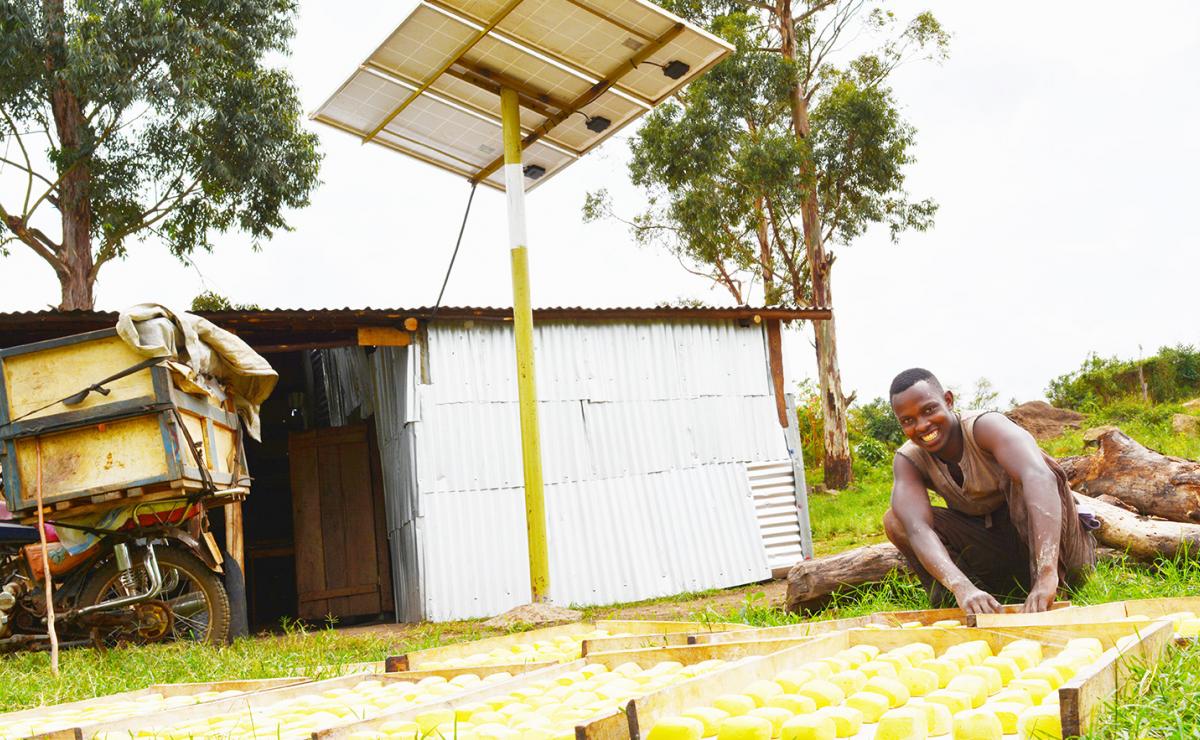
Trio-Active bakery is thriving, its production, sales and profits have increased tremendously as narrated by Beatrice Nyinawomunu, the Manager. From 200 packs a day, the bakery now produces 400 packs of bread, Swiss rolls and donuts that are supplied within and outside Rwamwanja refugee settlement.
Nyinawomunu attributes the progress to the new addition of the company’s assets, the solar energy system. She explains that Trio-Active’s premises were not connected to electricity before they acquired the solar system. “We would only work for 10 hours a day with natural light and halt work on the fall of the night. We would not use any machines. This limited the quantity of our production,” added Nyinawomunu.
This changed when the group acquired a solar system from the Lutheran World Federation (LWF) with funds from the EU Humanitarian Aid. From 10 hours a day, the group started working 24 hours which has increased the bakery’s production and profit.
“Access to electricity allows us a full day of baking, full nights of packing and by dawn, our products are ready for distribution,” said Nyinawomunu. “With our security lights, we haven’t had any thievery break-ins for months unlike before,”
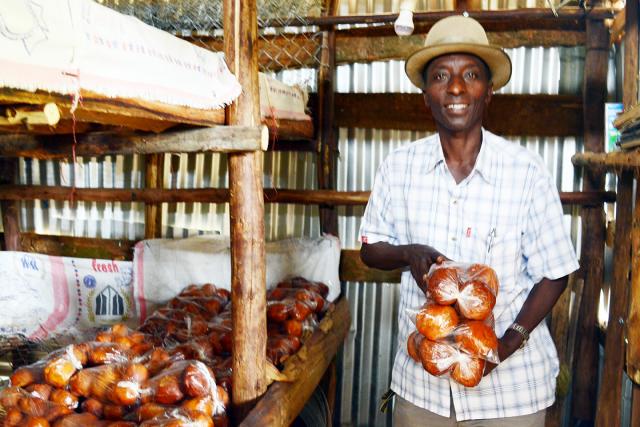
Increased production has fruited the bakery’s progress as Eric Rwirema, the Trio-Active group’s chairperson explains that the labour force has increased from 4 to 7 people, 4 nationals and 3 refugees; 2 motorcycles have been procured to transport products to near and far locations for market; the monthly average profit has doubled from UGX 800,000 (€185) to UGX 1,600,000 (€369); the bakery premises have been extended and staff quarters are under construction.
Meanwhile the bakery is owned by 20 refugees who are also members of Trio-Active business group.
“The bakery offers more job opportunities to people than before, both employees and we the business owners earn a living which has improved our livelihoods and economic independence,” said a smiling Rwirema.
Trio-Active group looks forward to mechanizing the bakery work by procuring an electronic mixer and 2 ovens at the end of 2017.
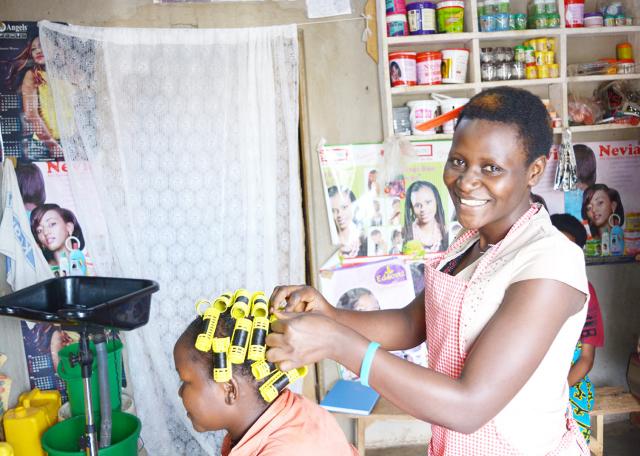
Just like Trio-Active bakery, God’s Will Unisex salon is also prospering after acquiring a solar system. It has expanded from a ladies’ small salon to a bigger unisex salon as explained by one of its owners, Olive Nyiransaba.
She recounts that the salon offered a limited number of services that didn’t require electricity like hair plaiting. However, God’s Will salon now offers a wide range of services including; unisex haircuts, hair treatment, retouch, plaiting and styling.
With more services, the salon’s clientele list has grown even bigger hence God’s Will business group of 15 cashing in an average of UGX 400,000 (€93) in profits unlike the UGX 100,000 (€24) they used to earn.
The group also employs 3 of its members who earn UGX 80,000 (€19) per month. “I can now afford my personal needs and also pay school fees for my sister in secondary school with my incomes from my salon job,” said Naume Agasha a member of God’s Will group and employee at the group’s salon.
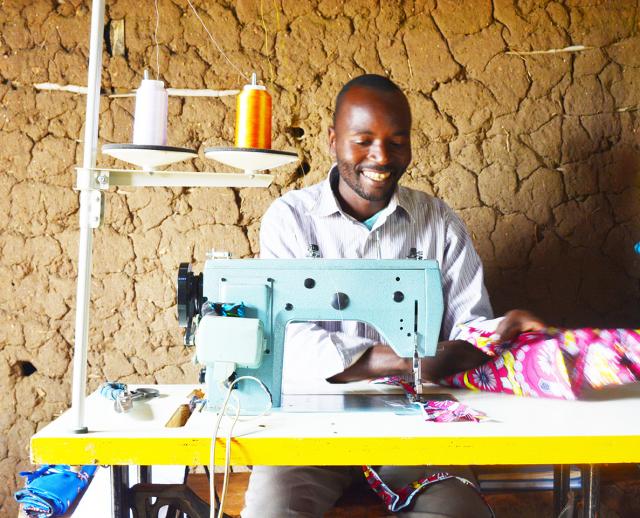
Tailoring groups like United Power for Wealth (UPW) that have been supported with solar systems have also expanded their business by using electric sewing machines. These make the tailors’ work easier, faster and neater as explained by Joseph Bayavuge, UPW’s Chairperson.
Bayavuge narrates that before acquiring the solar system, he was trained in tailoring and business management. He was also offered 3 sewing machines for his group of which 1 was electric.
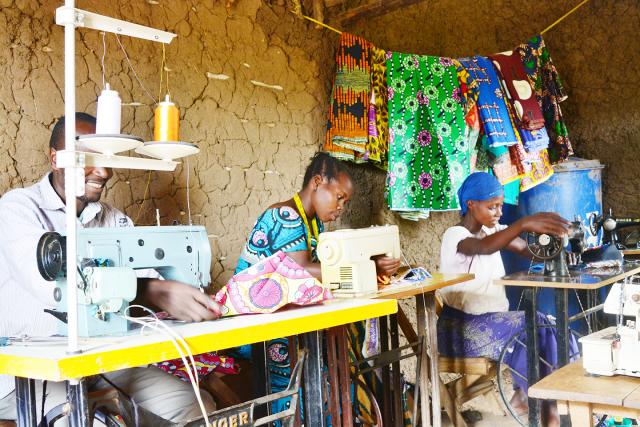
The group has since then procured 2 more electric machines with Bayavuge training 8 women and 1 man in UPW group how to tailor fine clothes with both electric and manual electric sewing machines.
Electric machines tailor fine clothes that the group sells at a higher price than those tailored with the manual machines. “The high quality of clothes tailored with electric machines has also attracted more customers to our business,” Mayavuge.
With profits, UPW has acquired a house for a work station and expect to buy more machines so that each of the group members has a machine to use. “Our monthly profits have increased from UGX 300,000 (€70) to UGX 450,000 (€104) since we started using electric machines. With increased production and profits, we shall also establish an African print cloth store,” said Bayavuge.
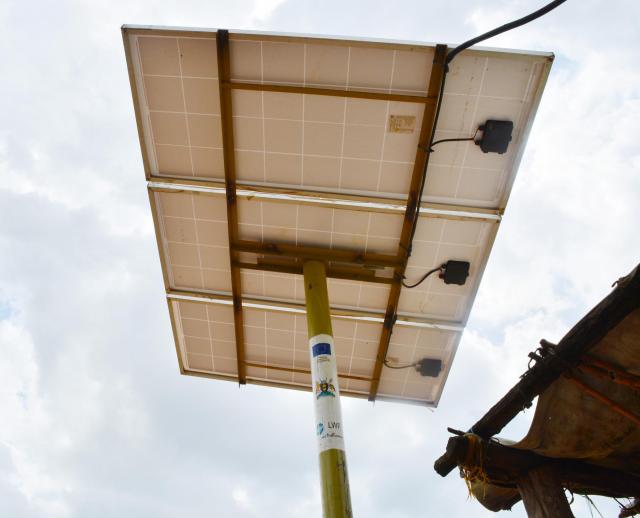
To date, LWF has supported 152 groups of Congolese refugees and host community residents with income generating activities in Rwamwanja settlement. To enhance their businesses LWF with funds from EU Humanitarian Aid has provided solar energy systems to 14 existing groups for lighting and to improve or diversify their businesses through the ‘Enhancing self-reliance and resilience Project’. This is aimed at achieving the first Sustainable Development Goal of zero poverty by improving the beneficiaries’ livelihoods and increasing their self-reliance.
Many thanks to the EU Humanitarian Aid for its support towards LWF's project aimed at improving livelihoods and self-reliance among refugees and host community residents in Rwamwanja settlement.

